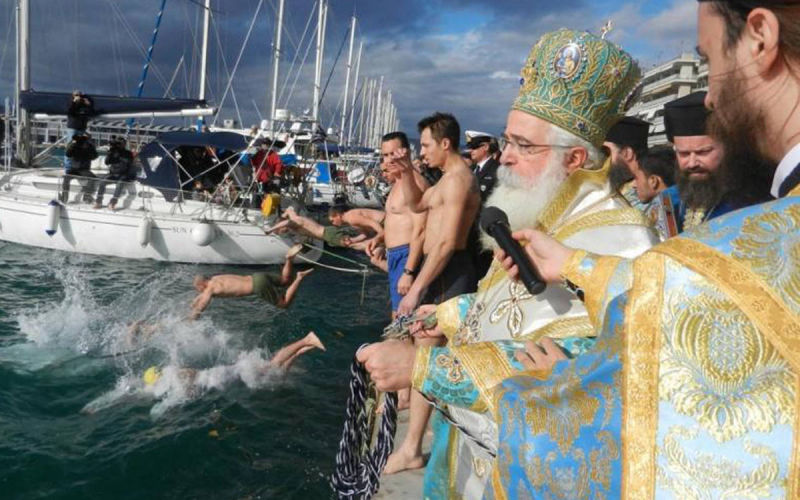 Epiphany blessing of the waters
Epiphany blessing of the waters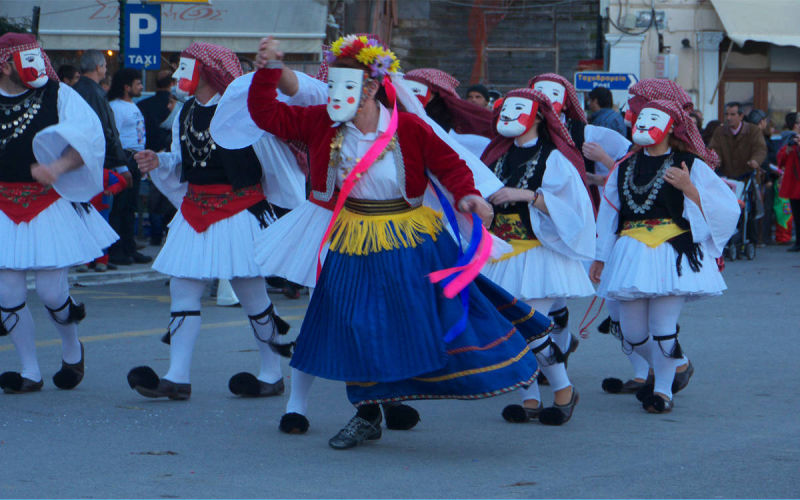 Carnival in Gythio
Carnival in Gythio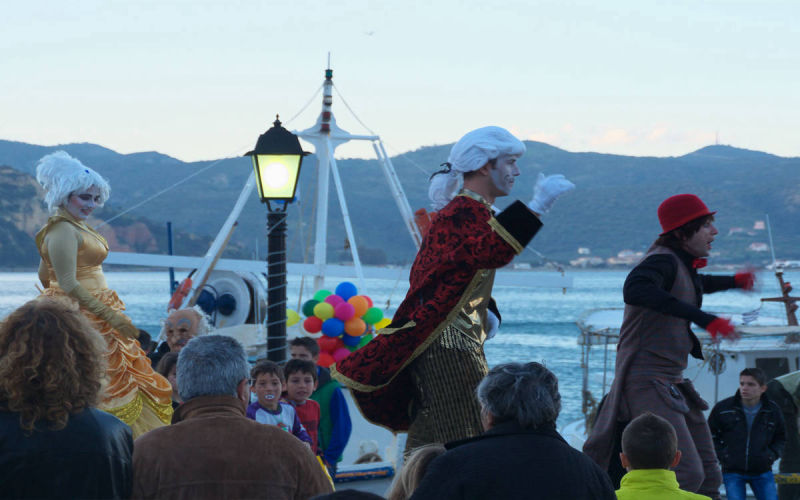 Carnival in Gythio
Carnival in Gythio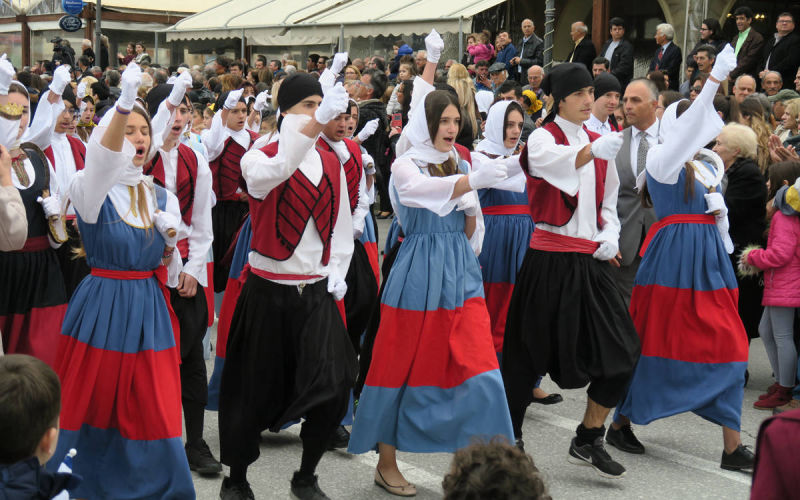 March 25th Independence Day
March 25th Independence Day 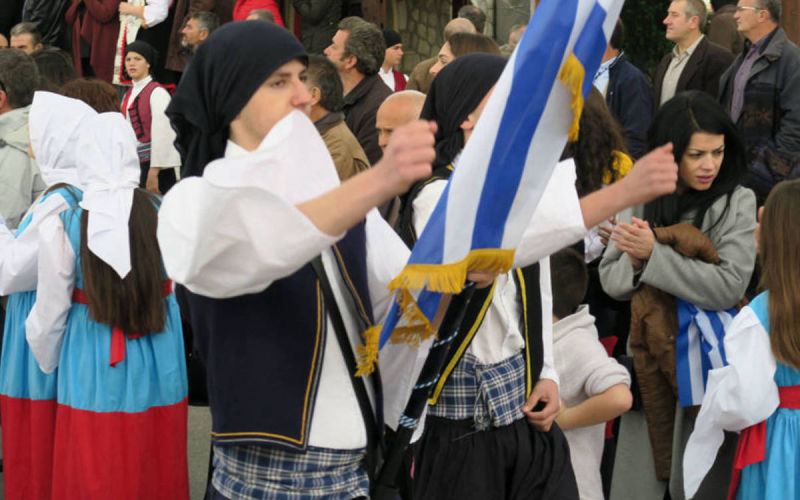 March 25th Independence Day
March 25th Independence Day 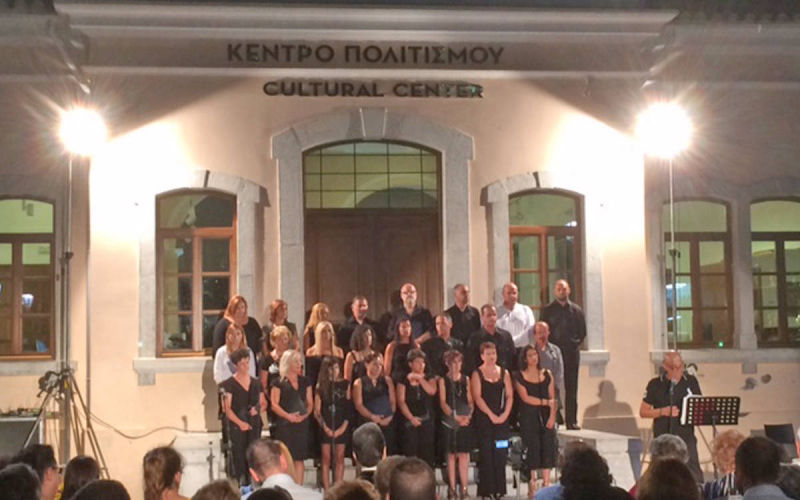 Cultural summer festival
Cultural summer festival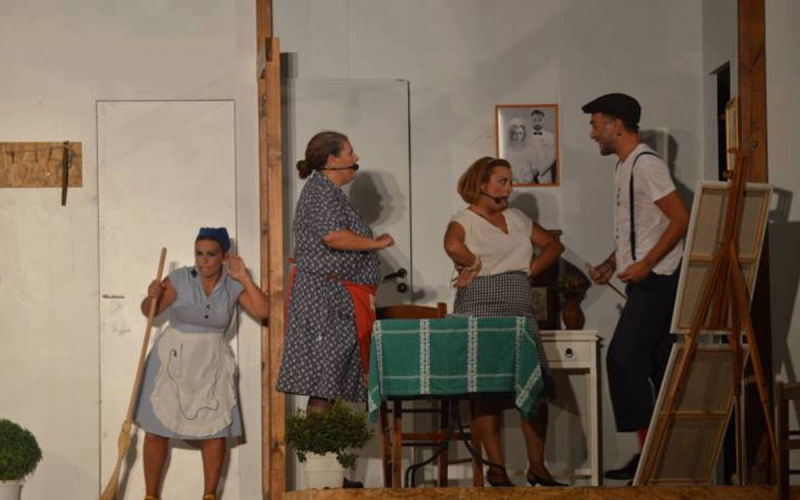 Cultural summer festival
Cultural summer festival Annual goods market
Annual goods market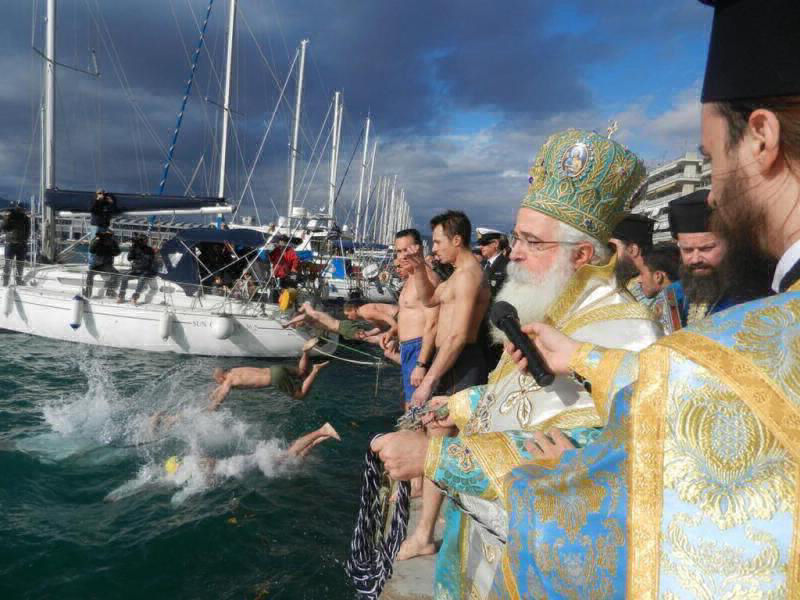
The first sanctification of the Epiphany (The Enlightenment) takes place in church on the eve of the holiday. The big sanctification takes place the following day, January 6, the day of the Epiphany.
A procession is formed and follows whatever road that leads to the sea. Up in front of the procession are the cherub icons, followed by the priests dressed in their best holiday splendor, then the VIPs, followed by all the people. In the bigger cities, the procession becomes more elaborate with the addition of music and military contingents. At the end of the sanctification ceremony a priest throws a cross into the water, thus blessing the waters.
Then, those who dare - mostly the younger people of the village - jump in the usually icy water and compete in retrieving the cross. The one who brings the cross up to the surface will enjoy good luck and health for the entire year
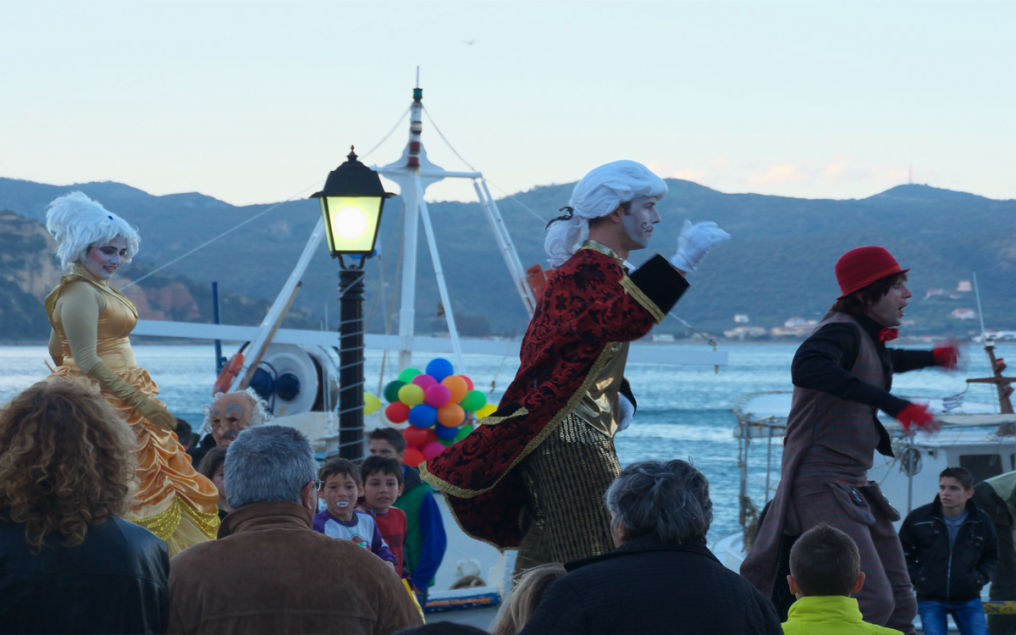
Each year, more of the ancient traditions of Carnival are being revived in Greece, so in Gythio.
"Burnt Thursday" or Tsiknopempti is celebrated eleven days before the start of Lent. The "Burnt" part refers to the grilling of meats, a big part of the celebration of this day. The weekend following "Burnt Thursday" will also have parties and other events; technically, that Sunday is the last allowable day for eating meat and is sometimes called "Meat-eating Sunday". The best Greek restaurants will be crowded on this day - but seafood places are a safe bet to have tables available!
For the traveler to Greece, the most vigorous party is on the weekend prior to the end of the Carnival season. This is followed by Clean Monday or "Ash Monday", a generally family-oriented day where kite-flying prevail.
Carnival in Greece is related to the pagan rituals of the ancient worship celebrations to Dionysus, the God of wine, agriculture, fertility, dance, and fun. The ancient Greeks held this wine and dance festival in February/March to celebrate spring. There was a parade with a Dionysos figure, fancy dress, and masks.
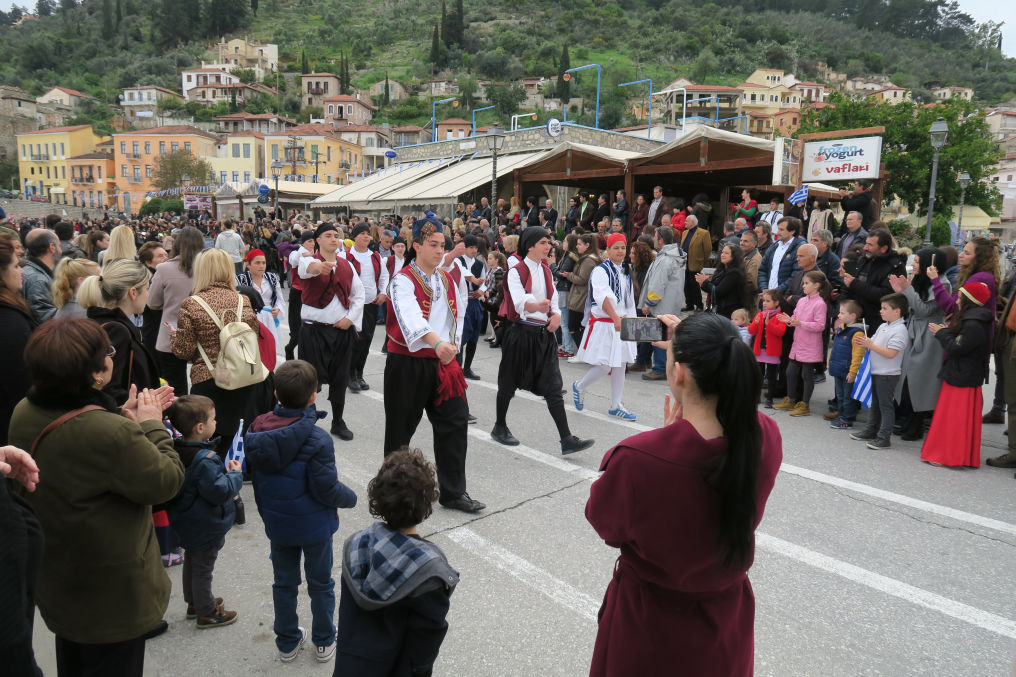
On the 25th of March the Greeks and the Greek diaspora around the world celebrate the Greek War of Independence or the Greek Revolution. These events took place between 1821 and 1832 and liberated the country from the Ottoman Empire.
The Peloponnese plays a crucial role in the history of Greek Independence. On March 17, 1821, war was declared against the Ottoman Empire by the Maniots at Areopoli in the Peloponnese capital of Mani
In celebration of Greek Independence Day, towns and villages throughout Greece, so also in Gythio, hold a military as well as a school flag parade, during which schoolchildren march in traditional Greek costume and carry Greek flags.
During the summer months August until September of each year the Municipality of Eastern Mani with its Mayor domicile in Gythio organizes a lot of cultural events, with traditional and modern music, theatre, exhibitons and other events also especially for children.

Every year, round 14 to 20 September, in Gythio takes place a commercial fair. Merchants and vendors from all over Greece gather here to sell their goods under tents. You can buy almost anything at this "Panigyri", clothes, kitchen utensils, agricultural tools, carpets, curtain fabrics, silverware, toys, accessories, forklore handicrafts etc.
The traditional food served at this fair is "bouzopoula", which is the name of roasted pork, only in Peloponese.
Other delicacies you can eat are desserts, such as "loukoumades", (doughnuts in syrup), "halvas farsalon", which is a labour intensive procedure to make it and is made only by experts in large caldrons, "pastelli" (sesame seed candy) etc.
Otherwise "kalamboki", which is grilled corn on the cob, salted pop corn etc.